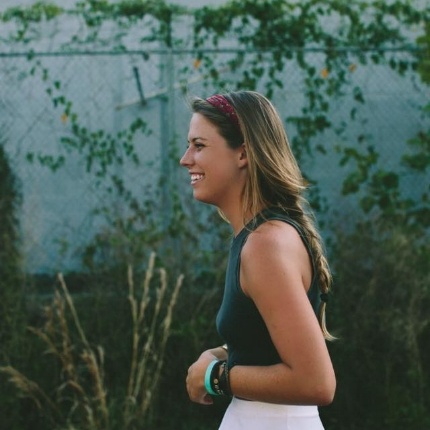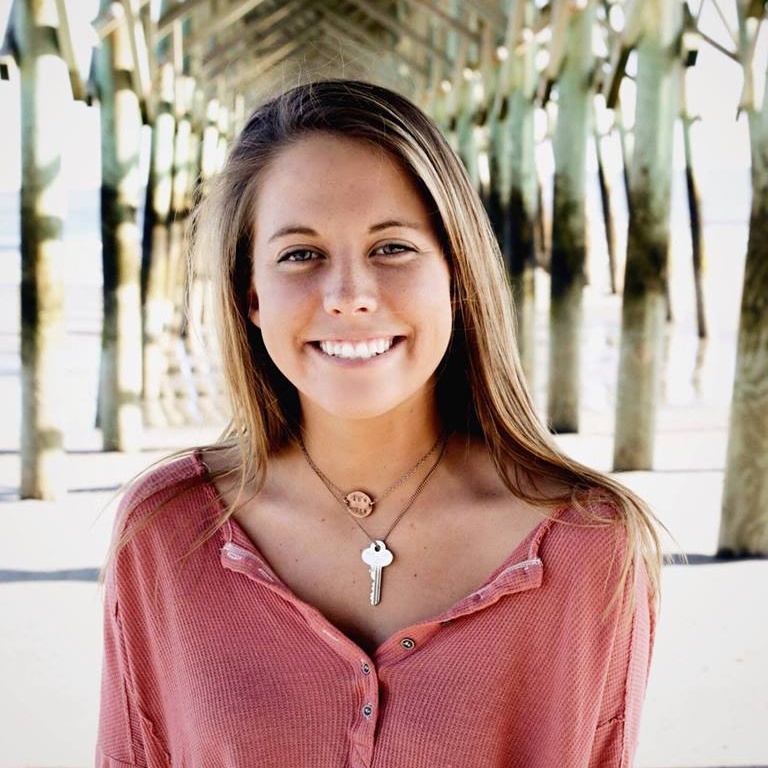“A picture paints a thousand words.”
But pictures don’t necessarily tell the truth. Actually, it can do the exact opposite. It can tell you a complete lie.
If you look through my previous Instagram pictures, it would be impossible for you to tell which days I was struggling, which days I felt alone, which days I contemplated suicide.
The pictures I would post told a thousand different lies, all of which were masked by filters and clever captions.
The “Perfect” Life
I went to the College of Charleston in South Carolina as a freshman in 2013. To an outsider, I probably looked like I had a “perfect” life. I was given a bid to a sorority that some girls cried about not getting. I was elected to be the Student Body Secretary as a freshman, receiving more votes than any other elected positions. I was part of over 20 organizations on campus. I had a bunch of friends and many knew my name.
I had the “perfect” life. Or so it seemed.
No one knew I was a victim of severe cyberbullying on Facebook for over two years in high school. I was tormented by a small group of girls. They ruined my reputation online. On top of that, I lost my only true friend to brain cancer.
No one knew I lacked any confidence or self-esteem, or that I hated the sight of my own reflection.
No one knew I attempted to take my own life from feeling so alone and worthless.
No one knew that only a month before going to Charleston from Philadelphia, I had been sitting in a little shoe-box sized psychiatric hospital room—stripped of my shoelaces, electronics, and dignity.
Instagram Filters and a Metaphorical Mask
I hid my life under Instagram filters. And that was exactly the way I wanted it to be. I wore a metaphorical mask: hiding my struggles, mental illnesses, insecurities, and imperfections. I wore it well.
I was terrified that if people knew the real me–the me that suffered from Post-Traumatic Stress Disorder, Depression, and Social Anxiety–they would think I was ‘crazy’ or ‘weird’ because that is what the mental health stigma made me believe.
So, during my freshman year, I would go to on-campus therapy secretly each week, telling my roommate that I was going to class. My therapist was one of the only ones to know what lied beneath my mask. One of the only ones to know the real Emily Torchiana.
Taking the Filters and Mask Off

It was not until my sophomore year when this mask completely came off. My therapist asked if I would be interested in sharing my experiences with cyberbullying. After much contemplation, I decided to do it, in the hopes of helping just one person silently suffering.
The room was filled with students, faculty, and community members, all wanting to talk about this seemingly-taboo topic: mental health. It was the first time that my life was unfiltered.
After that life-changing event, I no longer hide my mental illnesses and struggles. The talk I gave that day gained traction, and I began getting opportunities to share my story across the country at different schools, colleges, and conferences. After each talk I gave, a long line of individuals would form to speak with me. Kids as young as 10 years old to adults as old as 70 would privately share with me their battles with mental illness.
From Silence to Founding the Invisible Illnesses
That is when I got the idea: Why not give people a public platform to share their experiences with mental health to reduce the stigma and help those still silently suffering?
The idea was put into action by founding my non-profit organization, “The Invisible Illnesses” last October. Each week, we feature an individual’s brave story of struggle, ranging anywhere from eating disorders and bipolar disorder to substance abuse and sexual assault. Within just four short months, the stories had over 100,000 views on the website and over 200,000 views on Facebook.
On social media, we all tend to show the world our “filtered” life–the parts that are perfect, flawless, and exciting. We rarely share the parts of us that we find to be bad or ugly. But, that is exactly what The Invisible Illnesses urges people to do: share the raw and imperfect parts of us to shatter the stigma surrounding mental health.
The Invisible Illnesses’ slogan is, “Just because you can’t see them, doesn’t mean they’re not there.”
Because just from looking at me, you will not see my Post-Traumatic Stress Disorder, as well as Social Anxiety and Depression. But these are illnesses I deal with every day of my life.
THE ULTIMATE HOPE
My hope is that—through reading my story and many other stories—those who are currently silently suffering will no longer feel so different or alone as I did back in high school. My other hope is that those who do not suffer personally will learn about mental illnesses and see how truly common they are.
Mental illnesses are lifelong battles. They do not just go away like a cold or a virus, as much as I used to try and convince myself that they would. They may never go away, but you can learn to cope with them and deal with them in positive ways.
If you woke up today feeling like you do not deserve or want to be alive, please remember that this world would be a worse place without you and you would be so missed. You may not see it through the depression, but you are truly loved. You are here for a reason and although it may not seem like it will get better right now, please know that it will.
Nowadays, I no longer try to hide under Instagram filters. I’ve found a greater purpose for Instagram: share other people’s stories about their own journey through mental illnesses. Yes, we do use filters from time to time. But it’s not to hide their struggles and the insecurities. We use them to highlight the faces of the brave people who share their stories.
Got more questions about PICC Line? Join us in our Friends in the Fight Group to connect with our community.

